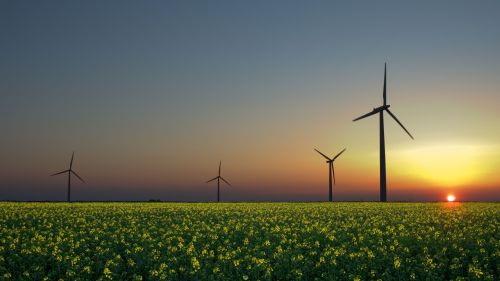It's Not Easy Being Green

Although reducing energy dependence remains a top priority among Americans, a debate over energy production versus environmental protection is gaining traction.
President Obama will be in Chicago’s western suburbs to promote his energy policies on Friday at Argonne National Laboratory. The Administration’s energy strategy has evolved over time, viewing the production of natural gas and nuclear energy as a transitional stage in shifting away from dependence on fossil fuels to a reliance on cleaner energy sources. As new supplies of oil and natural gas have been developed, particularly through fracking, the gains have also had positive knock-on effects for job growth and economic improvement. Analysts say that within a decade, the US could not only become energy independent, but also a net energy exporter. While this is good news for the goals of energy independence and economic growth, opponents of fracking are trying to raise concern about the environmental risks associated with the process.
As far as American public opinion is concerned, reducing energy dependence is a top priority. While a majority of Americans across the political spectrum favor measures that emphasize the development of alternative energy and energy conservation, they are not willing to personally pay increased taxes to encourage the use of alternative energy. Moreover, there has been a shift in opinion toward emphasizing energy production over environmental protection. As often happens, question-wording plays a role in how people react to energy options. And this highlights the potential for various messages from different interest groups to affect opinion.
Reducing U.S. Dependence on Foreign Oil Tops Nuclear Proliferation, Terrorism as Goal
The 2012 Chicago Council Survey finds that nearly eight in ten Americans believe reducing U.S. dependency on foreign oil should be a “very important” foreign policy goal of the US, second only to protecting the jobs of American workers. Energy independence is seen as very important by more Americans than preventing nuclear proliferation, combating international terrorism, and maintaining superior military power worldwide.
Majority Support Tax Breaks for Clean Energy; Oppose Increased Taxes on Gas or Electricity
When asked about various approaches to address U.S. dependence on foreign energy sources, the Chicago Council 2012 survey finds eight in ten Americans favor creating tax incentives for businesses to encourage the development and use of alternative energy sources, such as solar or wind power (78%). For most Americans, these tax incentives would have little direct impact on them personally, so there are not many downsides to supporting them in a survey question. Two in three also favor increasing fuel efficiency of American cars, even if it resulted in higher car prices (65%). On the other hand, a large majority of Americans (70%) oppose policy options that would require raising taxes on fossil fuels to incentivize individuals and businesses to use less coal and oil.
Other surveys confirm that Americans favor developing alternative energy supplies overproduction of fossil fuels. Pew Research/USA Today surveys from 2011-2013 also show a continued preference for “developing alternative sources, such as wind, solar and hydrogen technology” over “expanding exploration and production of oil, coal and natural gas,” though the gap between the two options has narrowed considerably since 2011.
A Gallup survey from 2012 also find majorities in favor of “setting higher auto emissions standards” (62%) and setting higher emissions and pollution standards for business and industry (70%), as well as spending government money on developing solar and wind power (69%), and the development of alternate sources of automobile fuel (66%).
Energy Production vs. Environmental Protection
These results in favor of clean energy might lead readers to believe the American public is leaning “green,” but other results show that Americans place less importance now on environmental protection (versus energy production) than they have in the past.
Between 2001 and 2008, more Americans placed a higher priority on environmental protection “even at the risk of limiting the amount of energy supplies, such as oil, gas, and coal, which the US produces” over the “development of US energy supplies, such as oil, gas, and coal, even if the environment suffers to some extent.” But in recent years there has been less consistency.
Between 2009 and 2012, opinion fluctuated between the two options- a consequence of the Gulf oil spill in April 2010. By 2011, more said that developing energy should be given greater priority, and in 2012 opinion is somewhat divided, with 47 percent placing a greater emphasis on energy development and 44 percent choosing the environment. These changes could be linked to declines in personal economic situations, and perhaps we will see a return to giving the environment precedence if personal financial situations improve.

